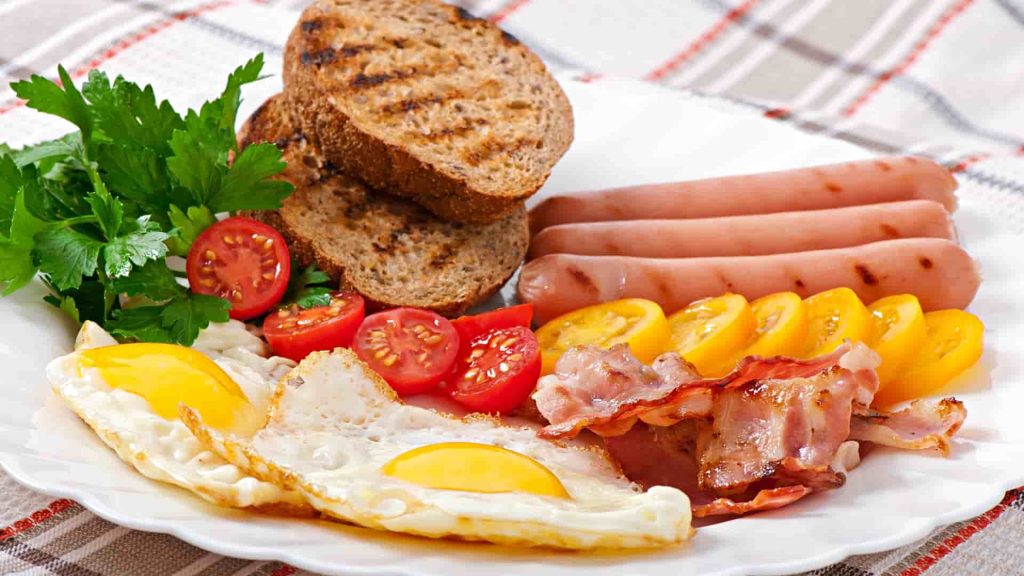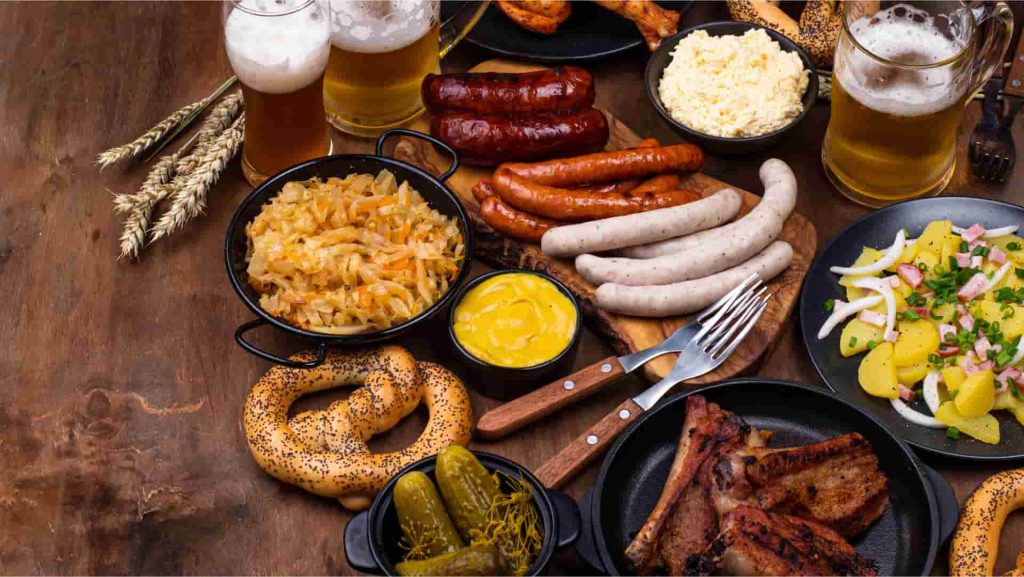From the early morning buzz to a peaceful night’s rest, this blog is all about a typical day in a German life. Let’s dig in.
Morning Routine

The day starts early in Germany, with most Germans waking up around 6 to 7 AM. Breakfast (of course, after a shower), or ‘Frühstück’, is an important meal for Germans. This typically includes various types of bread (which they are very proud of), cheese, cold cuts, and sometimes eggs. A strong cup of coffee is always present as Germans love their coffee more than water and beer. This solid love for coffee makes Germany the world’s second-largest importer of coffee.
Time for Work
After breakfast, Germans head to their workplaces. Germans are known for punctuality, and most people utilise the well-organized public transportation system to make it on time. About 13% of Germans ride public transportation daily, and 25% use it at least once a week. A Statista report states, “the Public Transportation market in Germany is projected to grow by 0.30% (2024-2028).” Besides public transportation, Germans also prefer cycling, driving, and walking to work.
Work Routine

The Germans pride themselves on their work ethic, which is characterized by efficiency and structure. An average workday lasts from 8 AM to 4 PM or 5 PM, except on Fridays, which are shorter. Though the working hours are short (with an average of 1,356 hours per year), Germany remains one of the world’s largest economies. This can be attributed to their high productivity level and emphasis on quality over quantity.
Also Read: 15 Things Nobody Tells You About Working in Germany
Lunch Time in a German Life
Lunch, or ‘Mittagessen’, holds a special place in the daily routine. Traditionally, it’s the biggest meal of the day, and it’s a time when Germans take a break from work and refuel. This practice stems from Germany’s agricultural roots, in which a strong lunch was necessary for labor-intensive farm work. While lifestyles have evolved, the preference for a substantial lunch still continues among many Germans.

The typical ‘Mittagessen’ usually consists of various dishes reflecting Germany’s regional culinary diversity. For example, you might find heavier, meat-based dishes like ‘Schweinebraten’ (roast pork) or ‘Maultaschen’ (Swabian ravioli) in the south. While northern regions mostly favor fish dishes or ‘Kartoffelsalat’ (potato salad). Common accompaniments include boiled potatoes, ‘Spätzle’ (a type of noodle), or ‘Rotkohl’ (red cabbage). The country also has a growing vegetarian movement, with more Germans incorporating plant-based diets into their lifestyles.
In many workplaces, colleagues gather to eat together, either in the company’s canteen, at nearby restaurants, or in outdoor eating areas, for about half an hour to an hour. Besides having a hearty meal, Germans use this break to catch up with their colleagues.
After Work Hours

‘Schönen Feierabend!’ is what German colleagues say to one another, translating to ‘Enjoy your after-work time!’ Following work, Germans enjoy various leisure activities. Germany has roughly 90,000 sports clubs, where Germans enjoy everything from football to hiking.
While some Germans enjoy spending their evenings practising hobbies, attending concerts, visiting art exhibitions, and watching plays, others prefer dining out with family or meeting friends at a local ‘Biergarten’ or ‘Kneipe’ (pub). Reading is another popular pastime among Germans, with the country publishing a high number of books yearly.
Dinner Time in a German Life
Dinner (or supper), often called “Abendessen,” is typically served early in the evening, around 6 to 8 PM. It usually consists of wheat bread, cheeses, cold cuts, spreads, sausages, and deli meat, accompanied by mustard, pickles, and beer. A platter-like arrangement is laid out for family members to choose and pick their preferences. Germans enjoy their evening meals outdoors (in the warmer months), especially in communal spaces like gardens or balconies.
Preparation for the Next Day
Germans prepare for the next day every night, reflecting their culture’s emphasis on planning, order, and efficiency. Germans often choose and pick out their outfits the night before. And this includes both work attire and any special gear they might need for after-work activities. Also, since Germans prefer homemade meals for their nutritional value and cost-effectiveness, they pack their lunches the night before. This usually includes sandwiches, salads, or dinner leftovers, snacks, and drinks.
Germans love cleaning and organising their home as it contributes to the well-being and order of German culture. So, cleaning the dishes, setting up the coffee machine for the morning, and tidying up the living space are common during this hour.

Germans often review and organize their tasks before they hit the bed. Among the things they might do is check their calendars, make to-do lists, and prepare necessary documents and materials. They prefer a calmer start over a morning rush.
Lastly, Germans also believe in the importance of mental preparation for the next day. This usually involves relaxation techniques, light reading, or spending a few moments reflecting or planning. Mentally outlining the next day’s goals and challenges makes the Germans feel more prepared and puts them to a good night’s sleep by 11(11.59 according to Daily Mail) or 12 PM.




